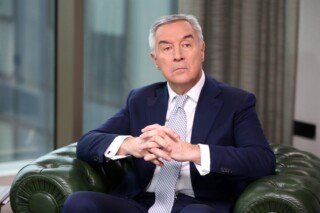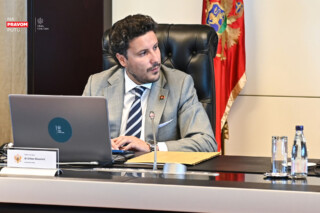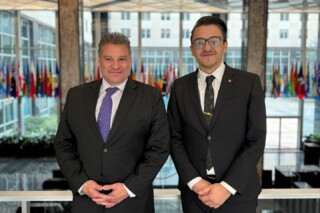How much money do media in Montenegro receive from the state? Are these funds properly distributed? Those were questions discussed at today’s conference Equal Opportunities for all Media in Montenegro” organized by the Centre for Civic Education (CGO), with the support of the Heinrich Boell Foundation.
The conference CGO’s study on financing Montenegrin media from public funds was presented. In addition to representatives of media outlets, the conference was attended by the minister of culture Janko Ljumovic, as well as representatives of political parties.
According to the survey, 121 public bodies spent €2,249,941 in 2016 for a variety of media services (ads, marketing). As presented, most of the money was paid to the Fleka advertising agency – €247.900, then Pobjeda – €243,894, RTCG – €118,424, the Prisma agency €107.926, the Arhimed agency – €99,101…
However, some participants at the conference had serious objections to the methodology used in the survey. They said that money from the private-owned companies was presented as state funds, whereas certain company activities were incorrectly interpreted.
Pobjeda’s editor in chief Drasko Djuranovic said that this study contained a number inconsistencies and methodological deficiencies, giving a false picture of the budget funds allocated for the media.
He said that the study did not specify revenues from advertising, public procurements and state aid
“There is Profile company included in the survey and it allegedly received €72,000 for marketing services, but it is a print shop. You say that Pobjeda received €240,000, but you have not specified on which basis the money was received. You have not stated that certain funds were assigned under the Law on Public Procurement and that only Pobjeda newspaper met all the requirements for that,” said Djuranovic.
He also noted that there were many mistakes in the study – namely that the funds from private-owned sources were presented as state funds.
“You said that the Cetinje Public Utility paid €61.852 to Pobjeda. This is the money that people give for death announcements trough that company and it has nothing to do with budget funds. Also you report that Dan newspaper received the money from Budva Burial Services and it is also money from the death announcements,” Djuranovic said.
He believes that the whole study is called into question because these and similar shortcomings.
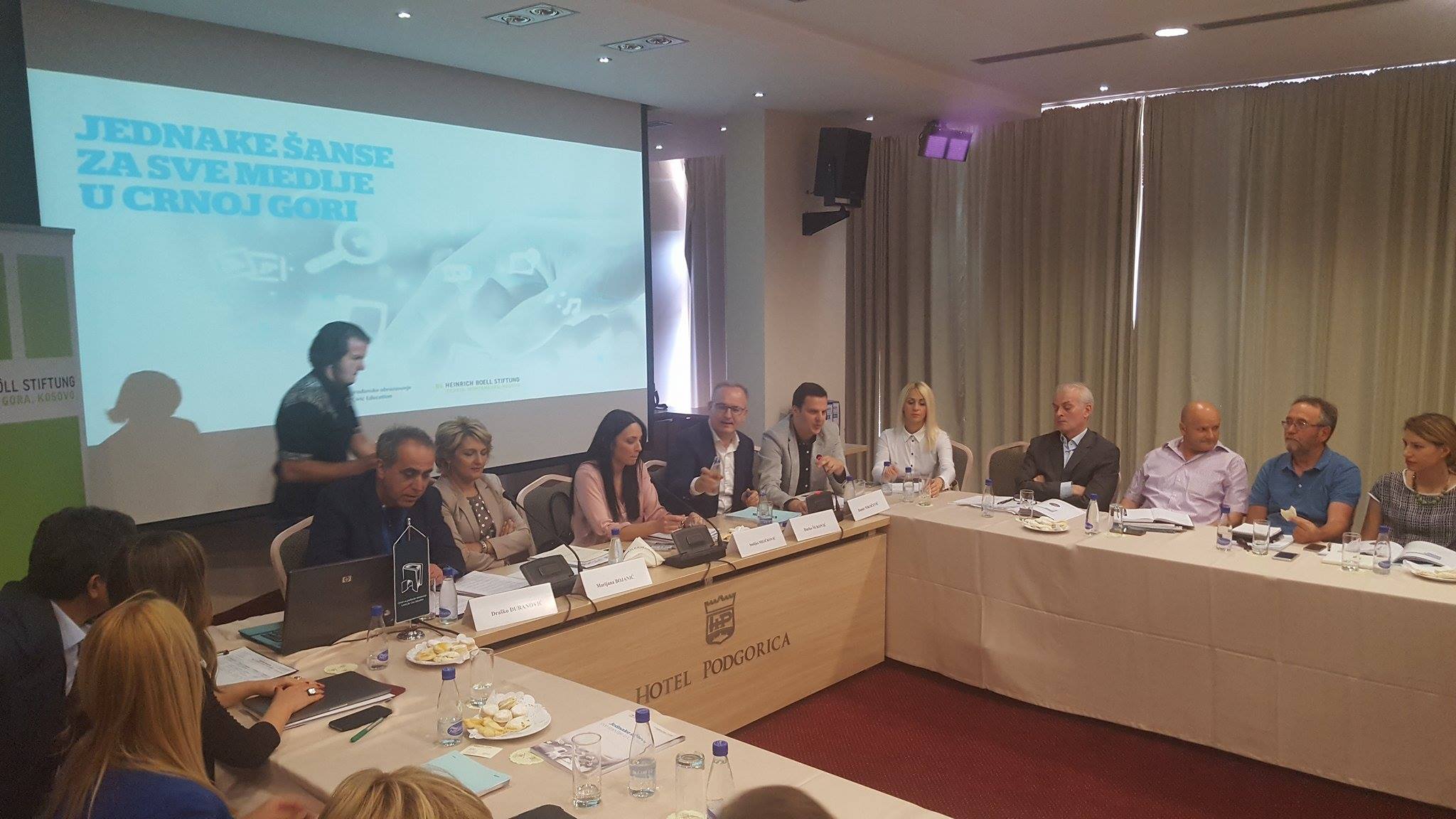
Director of Radio Antena M Darko Sukovic also had objections to the report.
“I think that the figure is correct as far as Antena M is concerned. But there are mistakes because you contacted only one side… Had you asked Antena M, you would have learnt that it was the money intended for both radio and news portal,” said Sukovic.
Marketing director of Dan Smiljka Milickovic said that she did not know according to which criteria the state funds were allocated and that Dan was disfavoured.
“Dan has the largest market share, but a significantly less funds allocated from public budget. There was a tender requiring that we should write affirmative articles, but Dan did not want to do that because there must be a clear distinction between journalism and advertising articles,” she said.
Director of Vijesti daily newspaper Zeljko Ivanovic said that the problem will be solved if no major national media outlets take resources from public funds for financing.
“The media cannot live on these funds,” said Ivanovic.
He said the true problem was trying to be avoided – that “the state helps certain media”.
Editor in chief of Monitor weekly Milka Tadic-Mijovic said that it was clear that the state favoured certain media and did everything it could against critically minded media.
“It is clear there is a group that favours pro-government media outlets, while trying to destroy those who report in the public interest,” she said.
Professor of political science Aneta Spaic said that the allocation of public funds was not only a problem in Montenegro, but also in EU countries.
SDP spokesman Mirko Stanic said that when allocating public funds attention should be paid to the readership and viewership of the media outlets.
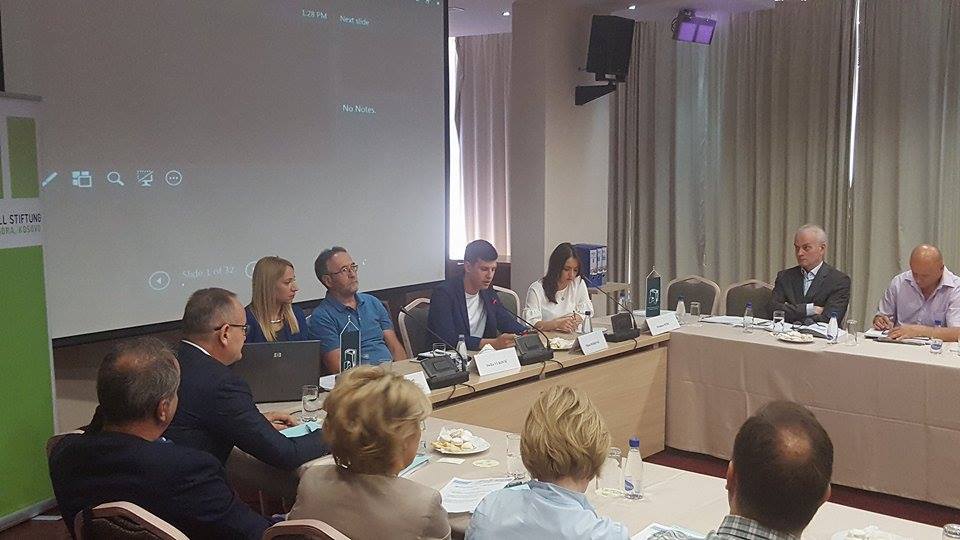
In her opening remarks, CGO director Daliborka Uljarevic said that financing from public funds was unregulated and uncontrolled. Thus “media are brought into an unequal position on the market”.
“Therefore, there is a reasonable suspicion that there are attempts to impact editorial policy or that there is a silent censorship. When all allocated funds are taken into account, including those for financing RTCG and local TVs, then we get information that at least €16.3m was paid to media and related entities from public funds in 2016,” said Uljarevic.
She pointed out that allocating public funds for the media was connected to the way the media outlets reported on government activities, adding that those affirmatively reporting were awarded whereas the other were sanctioned.
The survey showed that most funds, ie €1,088,726 was allocated to advertising agencies. Print media received €402,812, news portals – €88,889, radios – €99,768 and TV stations – €315,396.
Dan received €68,982 from public funds, Dnevne Novine – €49,838 and Vijesti – €35,631.
When it comes to TV stations, after RTCG public broadcaster, the TV Balkan received most funds, ie €55.610, then Vijesti TV – €32,842, Pink TV – €27,195 and Prva TV – €15,679.
Radio Antena M received €31,625, Radio Jadran – €24,245 and Radio Skala – €22,210.
When it comes to news portals, Portal Analitika received by far the largest sum – €39.805, followed by Vijesti news portal – €9,253 and CdM – €7,854. RTCG news portal received €5,712 and Kolektiv news portal – €4,284.


